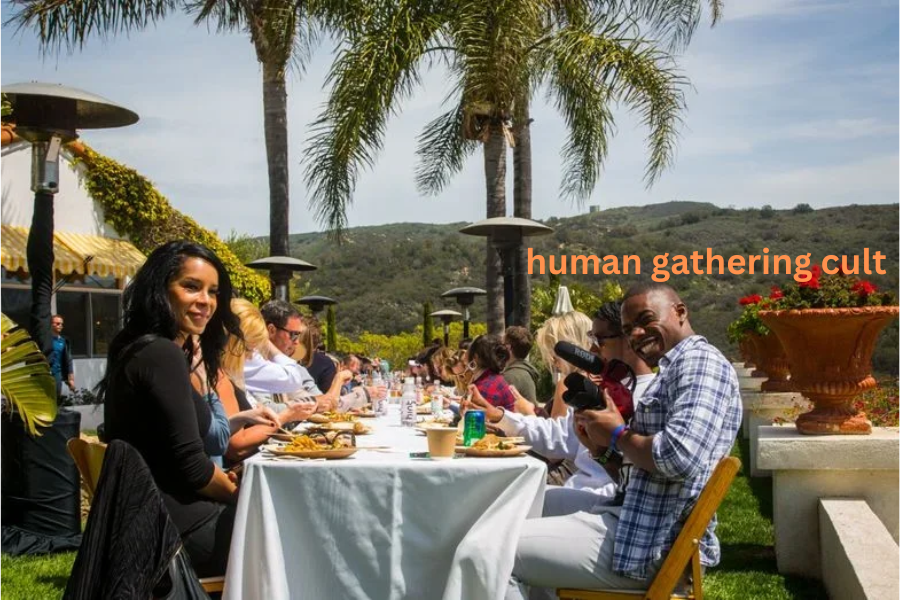Unveiling the Mystique: Inside the World of Human Gathering Cults And More
In recent years, the term “Human Gathering” has sparked both curiosity and skepticism among individuals seeking connection, personal growth, and community. While some view it as a transformative experience, others question its authenticity and legitimacy, labeling it as a scam. In this comprehensive analysis, we will delve into the concept of the Human Gathering, debunking myths, examining realities, and uncovering the truth behind this phenomenon.
Understanding the Human Gathering
Definition and Purpose
The Human Gathering is a concept rooted in the idea of bringing people together for shared experiences, conversations, and connections. It often takes the form of workshops, retreats, conferences, or gatherings centered around themes such as personal development, wellness, spirituality, or entrepreneurship. The primary purpose of the Human Gathering is to create a supportive and inclusive space for individuals to explore, learn, and grow together.
Core Principles
At its core, the Human Gathering emphasizes principles of authenticity, vulnerability, and community. Participants are encouraged to engage in open and honest dialogue, share their stories and experiences, and foster meaningful connections with others. The Human Gathering seeks to create a safe and supportive environment where individuals can explore their passions, overcome challenges, and unlock their full potential.
Debunking Myths About the Human Gathering
Myth: It’s a Cult
One of the most common myths surrounding the Human Gathering is that it operates like a cult, exerting undue influence over its participants and manipulating them for ulterior motives. In reality, the Human Gathering is typically led by facilitators or organizers who promote inclusivity, autonomy, and critical thinking. Participants are encouraged to question, challenge, and engage with the material presented, rather than blindly following a charismatic leader or ideology.
Myth: It’s a Money-Making Scheme
Another misconception about the Human Gathering is that it’s primarily a money-making scheme designed to exploit vulnerable individuals seeking personal growth or transformation. While some gatherings may charge fees for participation to cover costs such as venue rental, speaker fees, and materials, the majority of organizers operate with integrity and transparency, providing value-driven experiences that prioritize the well-being and empowerment of participants over profit.
Understanding Realities About the Human Gathering
Reality: Diversity of Experiences
The Human Gathering encompasses a wide range of experiences, formats, and ideologies, reflecting the diversity of its participants and organizers. While some gatherings may focus on spiritual awakening or self-discovery, others may center around professional development or social activism. Participants are encouraged to explore different gatherings, workshops, or retreats to find experiences that resonate with their interests, values, and goals.
Reality: Personal Responsibility
Ultimately, the success of the Human Gathering depends on the active participation and personal responsibility of its participants. While facilitators and organizers may provide guidance, support, and resources, it’s up to individuals to engage fully, reflect deeply, and apply the insights gained to their own lives. The Human Gathering is not a magic pill or quick fix for personal transformation but rather a catalyst for self-awareness, growth, and empowerment.
Historical Context of Human Gathering Cults
The roots of human gathering cults trace back to ancient times, when religious sects and philosophical communities promoted communal living and shared beliefs. Groups like the Essenes in Judea or certain Gnostic sects in early Christianity can be considered precursors to modern cults, emphasizing withdrawal from mainstream society to form tight-knit communities.
Psychological Aspects of Cult Formation
Understanding why individuals join cults requires examining psychological motivations. People may be drawn to cults seeking belongingness, purpose, or spiritual fulfillment. The allure of charismatic leaders and the promise of a utopian lifestyle can also play significant roles in attracting followers.
Characteristics of Human Gathering Cults
Human gathering cults often exhibit distinct characteristics such as strong hierarchical structures, isolation from mainstream society, and rigid belief systems. Cults utilize various methods to recruit and retain members, including social isolation, love-bombing (excessive affection and attention), and indoctrination techniques.
Impact on Members’ Lives
The impact of cult involvement on individuals can be profound. Members often experience psychological manipulation, loss of autonomy, and emotional dependency on the group. Leaving a cult can be challenging due to social, emotional, and sometimes physical repercussions.
Media Portrayal and Perception
Cults have been a subject of fascination in popular culture, portrayed in films, books, and documentaries. However, media representations often sensationalize or distort the realities of cult life, perpetuating stereotypes and misconceptions.
Legal and Ethical Considerations
Governments have grappled with regulating cult activities, balancing freedom of religion with protection against harmful practices. Ethical dilemmas arise when cults infringe upon human rights or engage in illegal activities.
Modern Examples of Human Gathering Cults
Recent decades have witnessed the rise of new-age cults, some with global reach and online presence. Groups like NXIVM or Heaven’s Gate highlight the enduring appeal of cults in contemporary society and the evolving nature of cult dynamics.
Cult Recovery and Support
Recovering from cult experiences often requires specialized support. Organizations and therapists provide resources for former members to reintegrate into society and heal from psychological trauma associated with cult involvement.
Research and Studies
Academic research sheds light on the mechanisms behind cult behavior, offering insights into group dynamics, leadership influence, and the psychology of indoctrination. Scientific inquiry helps demystify cults and inform preventive strategies.
Comparative Analysis
Differentiating between legitimate religious or spiritual groups and harmful cults is crucial. While devotion and communal living can be positive aspects of certain communities, exploitation and coercion mark the boundaries of cult behavior.
Cults and Online Influence
The internet has become a fertile ground for cult recruitment and dissemination of ideologies. Social media platforms and online forums facilitate access to vulnerable individuals, presenting new challenges in combating online indoctrination.
Debunking Myths and Providing Education
Educating the public about cults is essential for prevention. By dispelling myths and promoting critical thinking, communities can recognize warning signs of cultic behavior and protect against manipulation.
Impact on Families and Communities
Cult involvement affects not only individuals but also their families and communities. Loved ones often struggle to understand and intervene in cult dynamics, requiring community support and education to address the broader social impact.
Breaking Free from Cult Influence
Deprogramming and Recovery
Leaving a human gathering cult can be a challenging and complex process. Deprogramming involves undoing the psychological conditioning that members have undergone. Support from mental health professionals, family, and friends is crucial for recovery and reintegration into society.
Prevention and Awareness
Preventing the harmful influence of human gathering cults requires education and awareness. By understanding the psychological tactics used by cults, individuals can be better equipped to recognize and resist their influence. Public awareness campaigns and educational programs can play a vital role in prevention.
The Future of Human Gathering Cults
Evolving Forms
As society evolves, so too do human gathering cults. Future cults may adapt to new technologies and social trends, making them more sophisticated and harder to detect. Continuous research and vigilance are necessary to understand and mitigate their impact.
Ethical Considerations
Addressing the phenomenon of these gathering cults also raises ethical questions. These include the balance between religious freedom and protection from harm, as well as the responsibilities of governments and societies in regulating cult activities.
Conclusion
Human gathering cults are a complex and multifaceted phenomenon that offers a window into the depths of human psychology. By examining the psychological mechanisms that drive individuals to join and remain in these groups, we gain a better understanding of the powerful need for connection, meaning, and belonging that underlies human behavior. Understanding these dynamics is crucial for addressing the challenges posed by cults and supporting those affected by them. Educating the public, providing support for those impacted, and maintaining a vigilant approach towards evolving forms of cults are essential steps in mitigating their influence and promoting informed and critical engagement with group dynamics and belief systems.
Explore captivating stories and exclusive features on your favorite celebrities at GlamourHeadline.com.





